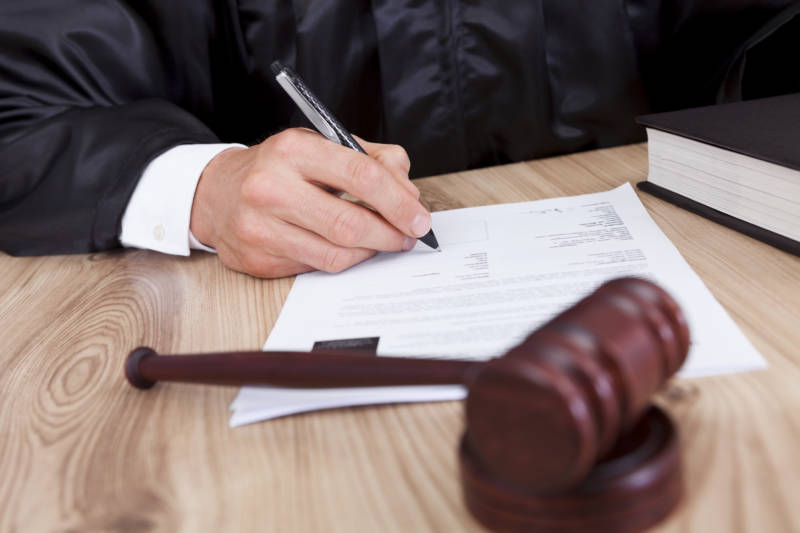Judicial races in San Francisco received the least amount of votes the last time the city elected a Superior Court judge two years ago. Just over a third of registered voters selected a candidate in the race.
That's partially due to the races being nonpartisan and the apolitical nature of the judiciary, Romero said. Judges are ethically bound to remain objective on any issue that could come before them, and that can leave voters in a quandary on which candidate to pick.
But every once in a while, voters get a stark reminder on the power Superior Court judges wield.
Santa Clara County Superior Court Judge Aaron Persky's sentence of former Stanford student Brock Turner to a six-month jail term for sexual assault stirred national controversy this year.
Critics blasted Persky's sentence -- the charges could have landed the champion swimmer in prison for 14 years -- and seized on the case as a potent example of unfairness in the criminal justice system.
Although Persky is up for re-election this November, he's running unopposed so his name won't appear on local ballots. He could face a special recall election next year.
Following the scandal, Persky transferred to Santa Clara's civil division, so he'll no longer hear sexual assault or other criminal cases.
But judges presiding over civil cases have extreme discretion, too, as San Franciscans were reminded late last year. After nine of the city's police officers swapped some violently racist, homophobic and sexist text messages, Judge Ernest Goldsmith handed down a ruling that kept the officers employed and on the city's payroll. Now, as Goldsmith retires, the city is appealing his interpretation of state law, and voters will select his replacement from two candidates steeped in city policing issues.
Both Paul Henderson and Victor Hwang are former San Francisco prosecutors. Now Hwang is a civil rights attorney who moonlights as a city police commissioner. In addition to grappling with the policy implications of scandals emerging from the SFPD, he would have heard disciplinary charges against the officers involved in the racist texting scandal. But before the former police chief's recommendation that those officers be fired reached the commission, they challenged the discipline in Superior Court, with attorneys paid for by the San Francisco Police Officers Association.
"As a police commissioner, wearing that hat, we have been shielded away from that litigation," Hwang said. "I have not looked at any of the papers, and I can’t comment on the judge’s decision on that case."
"I think anytime there’s an allegation of misconduct on the part of SFPD, we want to take quick and decisive action from the commission," he added.
Henderson is deputy chief of staff and public safety director for Mayor Ed Lee, who, along with other city and Police Department leaders, wanted the officers involved in the text messaging scandal fired.
"That’s just not acceptable and cannot be acceptable," Henderson said of the bigoted texts. "We cannot have a fair Police Department with communications like that."
Henderson said he wants to make the courts more accessible to marginalized communities, and his experience as a black man informs his sense of justice.
"If I’m successful in this race, I will not be able to ignore that, yes, I’m still an African-American man that is from this community," he said. "I have had experiences, positive and negative with a whole host of agencies and individuals that don't necessarily define how I make my decisions, but they’re absolutely relevant to who I am as a person."
Both candidates say they embrace the accountability that judicial elections bring to the bench.
"I do think this is a unique opportunity for voters to elect a judge," Hwang said, "and I think part of our message is trying to convince them to vote down-ballot in this very high-profile presidential election cycle. I think it’s important, and what I have emphasized over and over to voters is forget the politics, this is not a political race."
But Romero said elections are an imperfect way to keep judges accountable.
"Even if you believe in accountability and you believe that voters should weigh in, because voters often report that they don’t have enough information to feel comfortable about a judicial race, then are you really having accountability?" she said.
Conscientious voters could look at endorsements, she said, since they can't assess judges by party affiliation. And Romero suggested another option for voters to get more information: Follow the money.
"To challenge a judge and to get re-elected in a contested race, you do need a lot of money," she said. "We know that elected officials generally have to be concerned about their donors and who got them there, who supported them along the way, and is it always realistic for us to assume that judges, once elected, can completely rule out donors and other folks that supported them?"
Hwang raised $239,386 between January and late September, according to California Secretary of State campaign finance data. Henderson collected $129,053 over the same period.
Both candidates' donor rolls include a spectrum of attorneys and other members of the Bay Area's legal community, and both have standout large donors.
Hwang appears to have amassed some support on the San Francisco left, including donations from prominent progressives like state Senate candidate Jane Kim.* Henderson netted donations from two candidates for the city's next chief of police, the president of the Police Commission and the sheriff.
Henderson also received $1,000 from the San Francisco Police Officers Association's political action committee and $250 from Paul Chignell, the POA's legal defense administrator -- parties involved in funding the legal defense that kept SFPD officers who sent bigoted texts on the city's payroll.
Hwang and Henderson both acknowledge an uphill battle in educating voters on their race, often fielding a basic question: Judges have to run?
